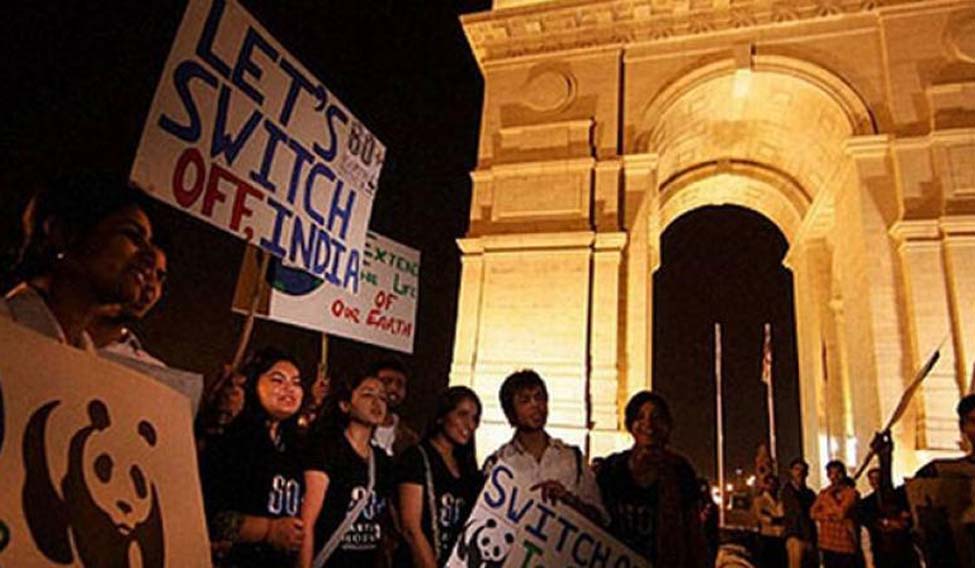On Saturday, between 8.30 and 9.30pm, urban India will go on a voluntary blackout to observe Earth Hour. The capital city's landmarks—Rashtrapati Bhavan, India Gate, Akshardham temple, Lotus temple and Red Fort—will turn off their lights in solidarity with the cause, which is 'climate action'. This year marks a decade of observing the Earth Hour to shine a light on climate action. World Wide Fund for Nature (WWF) first initiated the campaign, which was later taken up by residents' associations, corporates and government agencies. The darker the skyline, the more people have been roped into the cause.
Similar blackouts are expected across the country, from Mumbai to Hyderabad. The other landmark buildings which will go into off-mode are Charminar and Golconda Fort in Hyderabad, Guwahati High Court, Assam secretariat, Indian Museum in Kolkata, Agra Fort and Christ Church in Shimla.
The campaign began in Sydney, Australia, in 2007, with just a 'switch-off' mode, to highlight just how much energy could be saved in one hour of voluntary darkness. It has now evolved and carries messages of conservation as well as positive action against climate change. Traditionally, the last Saturday of March is observed as Earth Hour.
"The Earth Hour campaign launched ten years ago is a platform that allows people to stand together on climate change and adopt practices that can help us make positive changes and work towards a sustainable future," said Ravi Singh, secretary general and CEO, WWF-India. The appeal to the public is to switch off all non-essential lights, just for one hour in the year.
Over the years, the results have been varied. Some cities have shown a remarkable drop in power consumption, while some haven't fared too well. Once, in Canada, power consumption actually increased, because it was exceptionally cold and the heating devices were working at full power. So, the aim isn't just to save power, but to highlight several climate action issues. According to WWF, Delhi saved 229 MW of power during Earth Hour 2016 and 200 MW in 2015.
As of now, 7000 cities across the are set to participate in the Earth Hour, now touted as the world's largest grassroots environmental movement.
One advantage of the Earth Hour is that light pollution is remarkably reduced. The hour can be spent happily gazing at the stars. Will an urban skyline in India show the Milky Way tonight?




